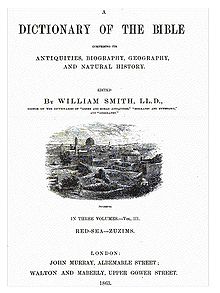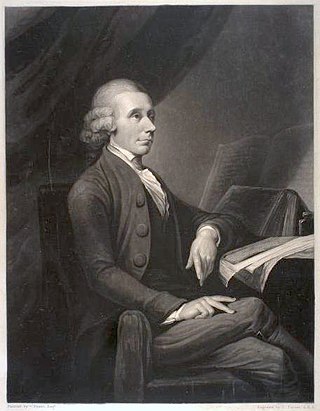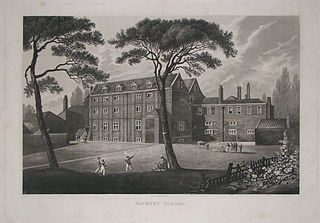| Year | Title | Editor | Comments |
|---|
| 1804 | Dictionary of the Bible [12] | James Wood [12] | |
| 1805–08 | Geiriadur Ysgrythyrol [13] | Thomas Charles | 4 vols. |
| 1810 | Dictionary of the Holy Bible [14] | Miles Martindale | 2 vols. |
| 1815 | A Theological, Biblical, Ecclesiastical Dictionary [15] | John Robinson | |
| 1816 | Biblical Cyclopædia [16] | William Jones | |
| 1817 | The Diamond Pocket Dictionary of the Holy Bible [17] [18] | William Gurney [19] | The 1829 American edition by Archibald Alexander comments that the book was found to be an abridgement of Brown's work; and Alexander made a fresh version. [20] Welsh translation 1835 by Isaac Jones. [21] |
| 1831 | Theological and Biblical Dictionary [22] | Richard Watson | Based on conservative authorities. [22] |
| 1833 | Dictionary of the Holy Bible [16] | Edward Robinson | |
| 1837 | Complete Index and Concise Dictionary of the Holy Bible [23] | John Barr | |
| 1840 | Biblical and Theological Dictionary [24] | Samuel Green | |
| ?–1843 | The Bible Cyclopædia [25] | William Goodhugh
William Cooke Taylor | 2 vols. |
| 1845 | Cyclopaedia of Biblical Literature [26] | John Kitto | 2 vols. An abridged version was made by James Taylor, as the Popular Cyclopædia of Biblical Literature (1854). [27] |
| 1845–53 | A Biblical Dictionary [28] | James Austin Bastow | 3 Vols. |
| 1847 | The People's Dictionary of the Bible [29] [30] | John Relly Beard | |
| 1847 | A Concise Dictionary of the Holy Bible [31] | James Covel | |
| 1848 | Biblical Cyclopaedia [32] | John Eadie | |
| 1851 | A Biblical and Theological Dictionary, illustrative of the Old and New Testament [33] | John Farrar | |
| 1854 | A Bible Dictionary [34] | Samuel Bulfinch Emmons | |
| 1856 | A Dictionary of the most important names, objects, and terms found in the Holy Scriptures [35] | Howard Malcom | |
| 1863 | Smith's Bible Dictionary | William Smith | A Concise Dictionary of the Bible for the Use of Families and Students (1865) was abridged from this work by William Aldis Wright. [36] |
| 1864–83 | Geiriadur Beiblaidd a Duwinyddol [37] | John Jones | 3 vols. |
| 1866 | Imperial Bible Dictionary [38] | Patrick Fairbairn | |
| 1866 | Treasury of Bible Knowledge [39] | John Ayre | |
| 1867–81 | Cyclopaedia of Biblical, Theological and Ecclesiastical Literature [40] | James Strong and John McClintock | 10 vols. |
| 1867 | Smith's Comprehensive Dictionary of the Bible [41] | Samuel Weed Barnum | |
| 1870 | The Household Bible Dictionary [42] | James Aitken Wylie | |
| 1870 | Beeton's Bible Dictionary [43] | Samuel Orchart Beeton | |
| 1871 | A Bible dictionary for the use of all readers and students of the Holy Scriptures of the Old and New Testaments of the books of the Apocrypha [44] | Charles Boutell | Reissued as Haydn's Bible Dictionary (1879), named for Joseph Timothy Haydn. [44] [45] |
| 1885 | Cursus Scripturæ Sacræ [46] | Karl Josef Rudolph Cornely et al. | |
| 1894 | The Sunday School Teacher's Bible Manual [47] | Robert Hunter | As Cassell's Concise Bible Dictionary (1901) [47] |
| 1894–1912 | Dictionnaire de la Bible [48] | Fulcran Vigouroux | |
| 1897 | Easton's Bible Dictionary | Matthew George Easton | |
| 1898–1904 | Hastings' Dictionary of the Bible | James Hastings | 5 vols. |
| 1899–1903 | Encyclopaedia Biblica [49] | Thomas Kelly Cheyne
J. Sutherland Black | 4 vols. |







